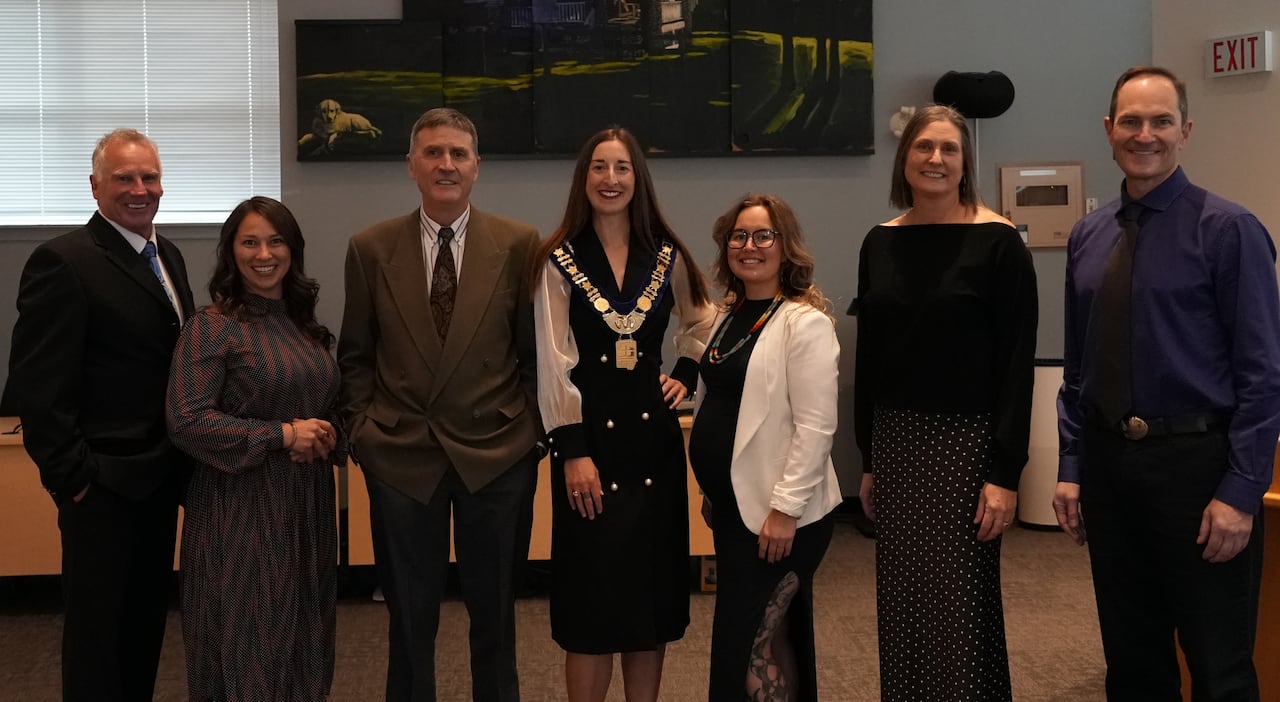Think your vote doesn’t count?
Think again.
You only have to ask Michelle Backhouse and Allan Buckingham.
The final seat on Banff council was decided by one vote between the two, with Backhouse’s 742 beating Buckingham’s 741.
The tally on election night had Backhouse up by two votes, but a recount led to the one-vote difference.
Backhouse credited her training as a firefighter in helping to deal with pressure.
“It was a little stressful, but I think with my firefighter role I’ve been taught to manage stress and the outcome is going to be the best outcome as is,” she said.
Backhouse said with it being her first run at a spot on council, “I didn’t know it was that rare.”
Buckingham, who was running a third time for council, said they knew votes would be close but wasn’t expecting such a razor–thin margin.
“In some ways you know that every vote matters and it can be close … Two votes or one vote? You know it’s possible, but you don’t really think it’s going to be that,” Buckingham said.
They noted it can be tough to get a sense of how a campaign is going, particularly without polls that larger cities typically have.
“It was all feeling good and I was pretty hopeful and hearing lots of positive feedback. I was pretty close, but not quite there,” Buckingham said.
Both said there was no second guessing about the campaign, with Buckingham saying “in an election campaign, there’s infinite things you could or should be doing.”
Buckingham could have sought a judicial review, but said the recount was sufficient for a final result.
“I don’t think that’s necessary for me,” Buckingham said.
If there had been a tie vote, provincial legislation stipulates that both candidates’ names would have been written on paper and a person would randomly pick one from a box.
Jack Lucas, a political scientist at the University of Calgary, said it’s “quite rare” to have a one-vote difference.
Close votes happen, but ‘extremely rare’
Lucas was part of a team that built the Canadian Municipal Election Database that comprises an archive of tens of thousands of Canadian municipal elections.
He said there are some elections where it’s decided by one vote, “especially in very, very small municipalities … but it’s extremely rare.”
Lucas noted there has been research in the political science field that suggests some people think it’s irrational to vote since one vote determining the election is “vanishingly small.”
“The probability that any candidate would win by one vote, and if you didn’t show up the outcome would be different, is so small. But here we are. Sometimes it actually happens.”
In the 2023 provincial election, the closest vote difference was in the Calgary-Acadia riding, which was decided by 22 votes, while in Calgary-Glenmore the top two contenders were 48 votes apart. Both contests went to a judicial review.
Federally, there have been 11 ridings decided by one vote between 1887 and 2025. The most recent was the Terrebonne riding in 2025 when Liberal candidate Tatiana Auguste beat Bloc Québécois candidate Nathalie Sinclair-Desgagné following a judicial recount.
A three-day hearing was held in October after a woman who voted for Sinclair-Desgagné said her special ballot was returned because of an error on the address on the envelope sent by Elections Canada.
According to data from the Alberta government, in the 2021 municipal election there were seven ridings determined by one vote, and Cardston County had a tie.
However, six were in towns or villages with fewer than 100 votes for each candidate, while the remaining two saw each candidate collect fewer than 200 votes.

Low voter turnout across Bow Valley
In the Bow Valley, municipal voter turnout has historically been below 50 per cent.
The last three municipal elections in Banff have seen a gradual decline, with the Oct. 20 vote drawing 1,786 voters out of a possible 4,588 for about 39 per cent. There were 2,090 voters in 2021 and 2,215 voters in 2017.
Calgary Eyeopener8:10Minister of Municipal Affairs on election changes
Alberta’s Minister of Municipal Affairs joins us to discuss how the Calgary election played out under new provincial rules.
Leslie Taylor, who served two terms as Banff’s first mayor and two terms as a councillor, said she was “quite concerned” with the declining voter trend, particularly with important community issues.
“We have a one vote spread between the No. 6 candidate who got on to council and the No. 7 who didn’t. One vote really does make a difference and going down and voting matters,” Taylor said.






